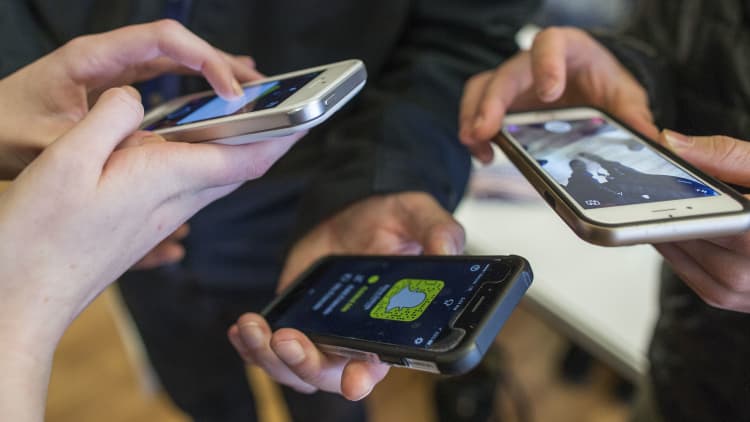At 19 months, Emerson Grant was just like any other toddler, spending his days playing outside with his siblings at the family home in Surrey, England.
But in August last year, Emerson was diagnosed with a cyst on his spine that, after surgery, left him paralyzed from the chest down. His life is now filled with uncertainty.
"Every night I put him to bed…I'm just praying that he's going to wake up the same child that we know," Emerson's mother Anna-Marina Dearsley said.
Earlier this year, Emerson had a seizure in the middle of the night, a day his parents describe as one of the worst of their lives. Dearsley and her husband Lee Grant now wake up every three hours to check their son's temperature and rotate his sleeping position. An app, they said, could be a solution to bring them peace of mind at night.
So, in September, IBM hosted a hackathon at one of its U.K. offices where teams of software engineers competed to design the best app for Emerson and his family.
The winning team designed a dashboard in the form of an iPad mounted on Emerson's wheelchair. The app would monitor the toddler's body temperature, heart rate and sweat levels and send out alerts if there were any abnormal readings.
Dearsley said the app would allow her son to live a more normal life. "Emerson has complex needs but they're needs that shouldn't stop him from being a normal two-year-old or a normal child," she said. "So with an app it would allow him to continue to follow his peers."
Emerson's story is just one example of how apps are transforming the digital health industry. A 2015 report from Monitor Deloitte cited mobile health apps as the fastest growing segment in the industry. The report estimated that the U.K.'s mobile health app market will be worth roughly £250 million ($328 million) by 2018.
"The app itself is dependent on how it links with other things," said Karen Taylor, research director at Deloitte's U.K. Centre for Health Solutions.
Taylor said apps are most successful when they offer a program designed to track its specific user's health, like the apps envisioned for Emerson.
Chris Edson is the co-founder and CEO of OurPath, a start-up in London that aims to deliver a tailored approach to health, specifically diabetes prevention. Edson founded the company when a close family member was at risk of diabetes.
"I was really struggling to motivate them to change their lifestyle," Edson said. "So that was kind of the point where I quit my day job and thought 'I'm going to try and build something for them.'"
For £180 ($240), OurPath users enroll in a three-month program to help manage their weight. They receive a fitness tracker and smart scale that send key metrics, like eating, activity, weight and sleep patterns, to an app. Users take part in an online community and receive personalized feedback from OurPath's dieticians.
Edson said the app's users see sustained weight loss of roughly 18 pounds on average, reducing their risk of diabetes by 70 percent.
Recently, OurPath was commissioned to partner with the U.K.'s National Health Service. The start-up will take on an additional 1,000 clients, more than twice its current user base.
There are still privacy concerns and regulatory hurdles when it comes to tracking patients' data in a health app. But Edson said he sees big opportunities for governments to partner with digital health companies to offer more innovative approaches to treat patients.
"It will be hugely enabling," he said. "It will just really build the evidence base to prove that digital maybe is the way forward for lifestyle change."



